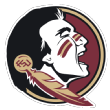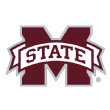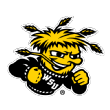Barry Bonds, Alex Bregman voted to ESPN's greatest all-time college baseball team

The first college baseball game was played on July 1, 1859, when Amherst College defeated William College 73-32, in Pittsfield, Massachusetts. In the 162 years since then, there have been nearly as many legendary college baseball players as there were runs scored in that contest.
But who is the best of the best? We decided to take that debate to the fans of college baseball while they were stuck at home in June without a College World Series to watch. The votes are in, and the roster is set. Here's who made the team and the stories that got them there.
Catcher: Buster Posey, Florida State
Quick, make a list of people who have a song written about them. Johnny B. Goode, Runaround Sue, Sweet Caroline ... and Buster Posey. That's how great he was at Florida State.
"Oh, yeah, man, they had a whole song they would sing when he came to the plate," Mike Martin, Posey's coach and the winningest head coach in college baseball history, said. "They'd go, 'Bus-ter Po-see! He'll hit a home run! He'll throw you out, too!'"
Gerald Dempster Posey III could have landed on this roster at any position on the field. In fact, he seemed destined to make this list as a shortstop. That's where he started his career at Florida State, hitting .346 and earning freshman All-American honors. But the following fall, Martin needed a catcher, so he and associate head coach Jamey Shoupe suggesting trying Buster behind the plate.
"I thought they were pulling my leg," Buster said. "But we set up the pitching machine, and I took some pitches, and I've been behind the plate ever since."
Posey spent that winter studying Jorge Posada and Joe Mauer, and the next season, he hit .362, threw out 41% of potential base stealers and became the youngest finalist named for the Johnny Bench Catcher of the Year Award. His final year, he won that award, along with the Dick Howser Trophy and the Golden Spikes Award, after hitting .463 with 26 homers and 93 RBIs, barely missing college baseball's second Triple Crown. On May 12, 2008, against Savannah State, Posey played all nine positions in one game, striking out the only two batters he faced. Then he led FSU to its first College World Series berth in eight years.
That, ladies and gentlemen, is how you get songs written in your honor.
Voting results:
- Buster Posey: 40.42%
- Adley Rutschman: 28.58%
- Jason Varitek: 11.63%
- B.J. Surhoff: 6.31%
- Kurt Suzuki: 4.95%
- AJ Hinch: 3.33%
- Mike Zunino: 3.11%
- Matt Wieters: 1.67%
First base: Will Clark, Mississippi State
"Oh, lawd, that swing." That's the reaction of anyone who saw Will Clark doing work at The Dude, even now, 35 years after his last game in a Mississippi State uniform. He was the first half of what is likely the greatest 1-2 punch in college baseball history: the "Thunder and Lightning" combo with future big league teammate Rafael Palmeiro.
The '85 Bulldogs are widely considered the best team to not win a College World Series title, as a team with four future MLB All-Stars (including Jeff Brantley and Bobby Thigpen) was forced to settle for third in Omaha, Nebraska. But that took little away from Clark's Golden Spikes season. In '85, Will the Thrill hit .425 with 25 dingers, 77 RBIs and 75 runs scored. He left Starkville as a two-time All-American with a .391 career batting average. He still ranks in the top 10 of nearly every major run-producing category in whatever college record book you can find.
"We were on the U.S. Olympic team together in '84 in Los Angeles, and pretty much everyone on that team ended up playing in the major leagues," former UNC Tar Heel and 18-year big leaguer B.J. Surhoff said. "Will was the one guy that we would all stop what we were doing to watch him take batting practice."
Because, oh lawd, that swing.
Voting results:
- Will Clark: 29.50%
- Frank Thomas: 26.09%
- Lance Berkman: 15.52%
- Andrew Vaughn: 7.99%
- Dustin Ackley: 6.07%
- Dave Magadan: 5.91%
- Tim Wallach: 4.58%
- Eddy Furniss: 4.34%
Second base: Todd Walker, LSU
Identifying the best player of the Skip Bertman era at LSU is like trying to decide which diamond is the shiniest rock in the jewelry store. But ask the Tigers, and they all point to No. 12, the second bagger out of Airline High School in Bossier City, Louisiana. However, if they're being honest, none of them was pointing toward him when he arrived on campus in 1991. He was the third-string second baseman, and many thought he should have taken his 51st draft pick money ($60,000) from the Texas Rangers and skipped college altogether. But he chose to come to The Box and fight for a spot in the lineup.
"That first fall practice, no one could strike him out, and we had a couple of future major league arms on that team," Bertman said. "I'd never seen someone so dug in at the plate, so I decided we'd start him as a freshman and see if he'd stick. I'd say he did."
Over three years, Walker hit .396 with 246 RBIs, 52 homers and 51 stolen bases. In the '93 College World Series, he drove in the ninth-inning run that put LSU in the title game. In that title game against Wichita State, he homered in the first inning to spark an 8-0 blowout. He was named Most Outstanding Player, with a CWS stat line of .390/3/12. So, yeah, he stuck.
Voting results:
- Todd Walker: 17.75%
- Nick Madrigal: 16.28%
- Chase Utley: 15.77%
- Bob Horner: 15.14%
- Rickie Weeks: 11.34%
- Marshall McDougall: 8.48%
- Kody Clemens: 8.03%
- Bill Bates: 7.21%
Shortstop: Alex Bregman, LSU
When Alex Bregman arrived in Baton Rouge in 2012, he requested to wear jersey No. 30. Why? Because he was still angry at the 30 big league teams that passed on selecting him during the first round of that year's MLB draft.
Over the next three years, he played like a man fueled by revenge. In 2013, he earned All-American honors, the Brooks Wallace Award for the nation's best shortstop and a trip to the College World Series, all as a freshman. In 2015, he powered the top-ranked Tigers back to Omaha and was one of four finalists for the Golden Spikes Award. His final LSU stats: .337 with 153 runs scored, 56 doubles, 66 stolen bases and 583 assists vs. 36 errors, with only nine in his final season.
In the 2015 MLB draft, only one team passed on Bregman, as he went second overall to the Houston Astros.
Voting results:
- Alex Bregman: 18.62%
- Barry Larkin: 18.39%
- Khalil Greene: 16.50%
- Nomar Garciaparra: 15.92%
- Dustin Pedroia: 13.14%
- Paul Molitor: 10.12%
- Dick Groat: 4.02%
- Alan Bannister: 3.29%
Third base: Robin Ventura, Oklahoma State
There was never a question as to whether Robin Ventura was going to be on this team. It was only a question of whether the team might be named the Fightin' Venturas. The Hot Corner slugger who found his way from Santa Monica, California, to Stillwater, Oklahoma, is the best hitter in college baseball history, and it's hardly debatable. He walked onto campus swinging, hitting an OSU-record .469 as a freshman and being named a First Team All-American, an honor he earned in each of his three seasons.
By the time those three seasons ended, he hit .429 with 329 hits and 300 runs, all still program records. He was named The Sporting News Player of the Year twice and won the Golden Spikes Award in 1988.
In '87, he captured the imagination of the sports world when he arrived in Omaha for the College World Series carrying a hitting streak that matched the magical number of Joe DiMaggio's 56. Ventura broke that mark in the opening game of the Series and reached 58 before an infield grounder was ruled an error by legendary CWS scorekeeper Lou Spry.
To this day, Cowboys supporters are angry about that decision. But in 2006, when Ventura was elected to the inaugural class of the College Baseball Hall of Fame, Spry approached Ventura with a photo of the controversial play. Ventura smiled and signed it: "To Lou, Great Call! Best Wishes, Robin Ventura."
Voting results:
- Robin Ventura: 30.36%
- Alex Gordon: 23.28%
- Pat Burrell: 11.27%
- Kris Bryant: 10.71%
- Keith Moreland: 7.70%
- Sal Bando: 7.00%
- Phil Nevin: 5.05%
- Anthony Rendon: 4.63%
Left field: Barry Bonds, Arizona State
At Arizona State, Barry Bonds was so good. But at Arizona State, Barry Bonds was also so bad. In three years in Tempe, the second-generation slugger hit better than .360 in two of those seasons and slugged 45 home runs, a huge number ahead of the Gorilla Ball era that was still years away.
The future MLB career homers leader powered the Sun Devils to a pair of College World Series appearances in 1983 and '84, making the all-tournament team both times and tying a CWS record with eight consecutive hits.
In recent years, Bonds' relationship with his alma mater has improved. In 2017, he was all smiles as his No. 24 was retired. But in 1992, when ASU's legendary head coach, Jim Brock, was asked about the Bonds era, he said, "No one on the team liked him. That was his fault. But I sure liked him in my lineup. That was his fault, too."
Voting results:
- Barry Bonds: 25.10%
- Pete Incaviglia: 22.33%
- Darin Erstad: 18.64%
- Rafael Palmeiro: 12.83
- Michael Conforto: 11.27%
- Terry Francona: 5.04%
- Mike Fiore: 2.92%
- Tom Paciorek: 1.87%
Center field: J.D. Drew, Florida State
They called them Circus Tent Shots, and from 1995 to '97 everyone in attendance at the Florida State ballpark, be it for a game or for batting practice, stopped whatever they were doing whenever J.D. Drew stepped to the plate, hoping to see a Circus Tent Shot. The FSU Flying High Circus Big Top, where Seminoles students can learn the circus biz, is located beyond the right-field wall of Dick Howser Stadium. Way beyond.
"J.D. isn't the only guy to bounce a homer off that tent," said Mike Martin, Drew's head coach. "But he was the only guy to bounce one off of every square inch of it -- the front, the back, the very tip top. The circus folks probably thought they were under attack for three years."
That's certainly how everyone in college baseball felt. In 1997, the pride of Hahira, Georgia, produced the greatest offensive season in college baseball history. He hit .455 with 100 RBIs and 110 runs scored. His 31 homers and 32 steals made him the first member of the 30-30 club. He's still the only member of that club and one of only three players to produce 100 runs, RBIs and hits in one season.
In 1997, Drew won the Golden Spikes Award, the Dick Howser Trophy and Player of the Year by The Sporting News, Baseball America and the ACC. Those awards went with his '95 honors as a freshman All-American and CWS all-tournament team and his '96 first-team All-American and member of Team USA. Perhaps he should build his own big top to house all of those trophies.
Voting results:
- J.D. Drew: 31.61%
- Fred Lynn: 18.41%
- Andrew Benintendi: 17.85%
- Mark Kotsay: 15.19%
- Oddibe McDowell: 7.57%
- Rick Monday: 3.67%
- Tom Goodwin: 2.91%
- Mike Kelly: 240 2.79%
Right field: Joe Carter, Wichita State
When Wichita State revived its baseball program in 1978, head coach Gene Stephenson knew he needed a special brand of superstar talent to spark the resurrected hardball Shockers. He found that hero in Oklahoma City's Joseph Chris Carter, Stephenson's first signee.
When Carter left for the big leagues three years later, he was a three-time All-American, two-time Missouri Valley Conference Player of the Year and holder of 10 season and 11 career Wichita State records. He still owns many of those marks nearly four decades after his last game and even after Stephenson's program became precisely the powerhouse he hoped Carter's recruitment would kickstart.
In fact, today's Shockers go to work each day in the Joe Carter Players' Locker Room, and today's Missouri Valley POYs are given an award named for Carter.
"Joe's last year, he hit .411," Stephenson recalled in 2017. "For any other player, that's a career season. But his freshman year, he hit .450, and his sophomore season, he hit near the same. I told him, 'Joe, I think these pitchers are figuring you out.' They weren't."
Voting results:
- Joe Carter 38.01%
- JJ Bleday: 15.03%
- Kyle Russell: 12.18%
- Trevor Larnach: 10.89%
- Kellen Kulbacki: 8.67%
- Seth Beer: 7.07%
- Casey Close: 4.86%
- Mickey Sullivan: 3.29%
Two-way player: John Olerud, Washington State
There is no shortage of two-way players on this all-time team. Heck, Ben McDonald played some of his non-pitching days in the outfield and also played basketball. Dave Winfield, the most glaring absence from this roster, was drafted by the NBA, the NFL and MLB and nearly won the 1973 College World Series by himself, at the plate and on the mound.
However, no one had a more monstrous crossover career than the Cougars' soft-spoken first baseman and pitcher from Seattle. John Olerud hit .434 in three seasons while hurling a record of 26-4. His 1988 season might be the best ever produced, as he hit .464 with 23 homers while going 15-0 on the mound, still the only time a college baseball player has topped 15 wins and 20 homers in a season. Oh, and he also overcame a life-threatening aneurysm and brain surgery that stole the first half of his final season.
But hey, why try to explain all of this here when you can read this recently posted feature on Olerud, penned by a really handsome ESPN senior writer.
Voting results:
- John Olerud: 31.59%
- Dave Winfield: 22.11%
- Brendan McKay: 14.22%
- Brooks Kieshnick: 10.32%
- Todd Helton: 8.63%
- Tim Hudson: 6.82%
- Brad Wilkerson: 3.21%
- A.J. Reed: 327 3.10%
Left-handed pitcher: Greg Swindell, Texas
In spring 1984, the always intense college baseball fans of Austin, Texas, were tempering their legendarily high expectations. The Longhorns had just won the College World Series with one of the all-time great lineups, featuring Roger Clemens, Calvin Schiraldi, Kirk Killingsworth and Mike Capel. But those players had all been drafted into the big leagues, and a letdown was imminent, right? Wrong.
"Greg Swindell came in there from Houston, and he immediately started showing some of the best control anyone had ever seen," former Texas head coach Cliff Gustafson recalled in 2015. "His first month as a freshman, I don't think he lost a game. He struck out everyone he faced, and he even earned a couple of saves. Everyone realized we were going to be OK."
They were better than OK. The Horns reached the CWS finals in '84 and '85 as Swindell spent three seasons posting a record of 43-8 with 13 saves and a 1.92 ERA. The three-time All-American also threw a pair of no-hitters and still owns a pair of Texas career pitching records, with 501 strikeouts and 14 shutouts.
Voting results:
- Greg Swindell: 28.45%
- David Price: 25.07%
- Jim Abbott: 13.94%
- Floyd Bannister: 7.48%
- Frank Viola: 7.38%
- Barry Zito: 6.26%
- Eddie Bane: 5.73%
- Andrew Miller: 5.69%
Right-handed pitcher: Ben McDonald, LSU
In 70 years of College World Series games played in Omaha, there is no player more beloved by the locals than Ben McDonald. And he never won a game there. In fact, he holds the record for most losses by a starting pitcher, going 0-for-4 during two trips in 1987 and '89. Why is he remembered so fondly, still earning screams and hugs every summer when he returns to cover the CWS for ESPN and the SEC Network?
"Because he's the most down-to-earth human being you could possibly meet," said his former head coach, Skip Bertman. "No one has ever faced more pressure in Omaha, and he handled it all with grace, even when it didn't go like we wanted it to."
Big Ben posted a record of 29-14, with 18 complete games, as an LSU starter. He was a two-time All-American, and in 1989, he won the Golden Spikes Award thanks to 202 strikeouts and 44 2/3 consecutive scoreless innings over 152 1/3 innings pitched. His 373 career K's are still a school best, even as the school became an MLB talent machine. McDonald won an Olympic gold medal in 1988, and in '89, he was the No. 1 overall MLB draft pick, which happened the night before one of those CWS losses.
"I put too much on him," Bertman admitted in 2008. "But the way he sat there and thanked the people of Omaha after his losses, the way he handled it all, how he promised to keep coming back to Omaha because he loved it so much, they have never forgotten that. That's all you need to know about Ben. That's who he is."
Voting results:
- Ben McDonald: 29.97%
- Roger Clemens: 22.89%
- Stephen Strasburg: 22.77%
- Burt Hooton: 9.91%
- Mark Prior: 7.50%
- Kirk Dressendorfer: 2.77%
- Don Heinkel: 2.77%
- Steve Arlin: 1.42%
Relief pitcher: Huston Street, Texas
Huston Street was born not on a street in Houston but, rather, on an avenue in Austin. He was a legacy Longhorn, son of James, the 1969 Cotton Bowl MVP as a quarterback and pitching ace of three College World Series teams. Huston was also a double threat, spending time at third and jogging in from the hot corner to nail down victories as Augie Garrido's go-to closer. From 2002 to '04, he earned All-American honors all three years, thanks to what are still some of the greatest shutdown statistics in college baseball history. He racked up a school-record 41 saves with a 1.31 ERA (second best), and opponents hit him for a paltry .172 average.
But Street did his best work in Omaha, where the Longhorns played in all three of his seasons. In 2002, his freshman year, he made four appearances on the mound at Rosenblatt Stadium, earning a CWS-record four saves, and he was named Most Outstanding Player. He was so dominant and so beloved among the Omaha locals that in 2010, they voted him onto the NCAA College World Series Legends Team.
Voting results:
- Huston Street: 32.40%
- Darren Dreifort: 16.59%
- Matt Price: 16.39%
- Gregg Olson: 14.35%
- David Berg: 8.08%
- Danny Graves: 5.77%
- Matt Anderson: 3.61%
- Blair Erickson: 2.80%














